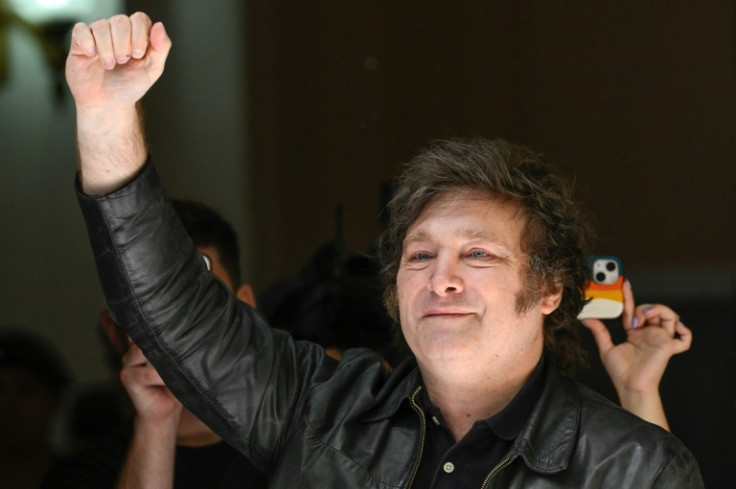
Argentine President Javier Milei has signed a decree outlining economic reforms, including an end to export limits and new measures to ease regulations as the country fights an economic crisis.
"This is only the first step. The objective is to return freedom and autonomy to individuals and start dismantling the enormous amount of regulations that have impeded, hindered and stopped economic growth," Milei said in a televised address Wednesday, Reuters reported.
The initiatives include easing government regulations and privatization of state-owned companies. Though the president didn't mention the names of any firms, he had previously supported the privatization of state-run petroleum refinery YPF.
The announcement came after thousands of people protested on the streets of Buenos Aires on Wednesday against the austerity measures of the president, who took office on Dec. 10. It marked the first protest following his inauguration.
The protestors demanded financial support for the poor after Milei, last week, announced a 50% devaluation of the peso currency and the closure of some government ministries, claiming that it was necessary to address Argentina's acute economic crisis. He also announced cuts to energy and transportation subsidies.
"It is a peaceful mobilization. We do not want any type of confrontation. We do not want any type of clash," Eduardo Belliboni, who leads the left-wing Polo Obrero (Workers' Party) group, told Reuters.
Argentina's central bank said earlier this week that it will change its benchmark interest rate from the previous 28-day LELIQ rate of 133% to the overnight reverse repo rate of 100%.
Roberto Geretto, an economist at Fund Corp, believes these changes will help reduce the fiscal deficit by pushing banks and savers to invest in treasury bills. However, it could also lead to an increase in the cost of dollars in the foreign exchange market.
Argentina, the second-largest economy in South America, continues to face high inflation with an annual rate of 143%. The country has a history of instability due to inflation, fiscal deficits and currency devaluation.
During his campaign, Milei had vowed to dollarize Argentina's economy and close down the central bank. He wanted to replace the peso with the U.S. dollar. He also warned that without reforms, the country might become the biggest slum in the world in the next 50 years.
© 2025 Latin Times. All rights reserved. Do not reproduce without permission.







